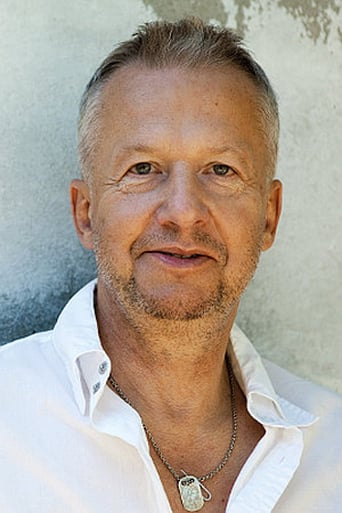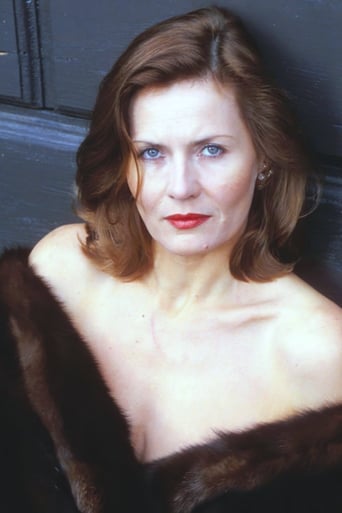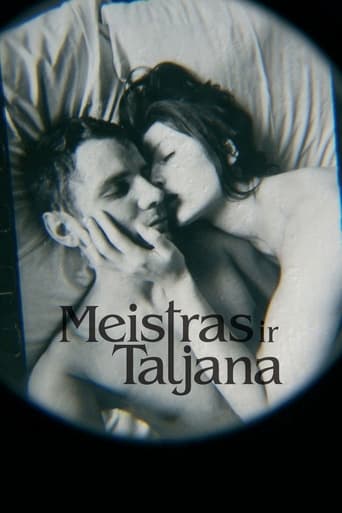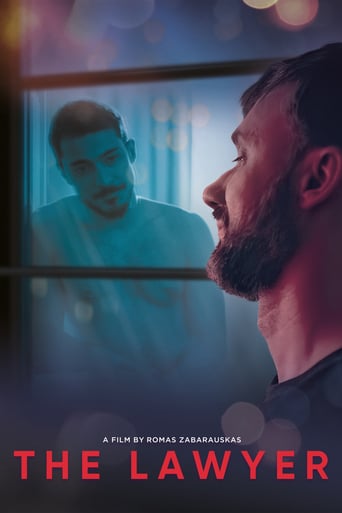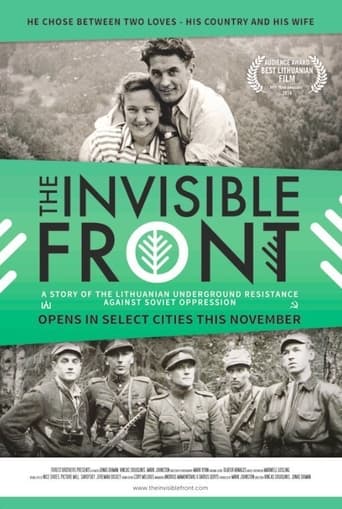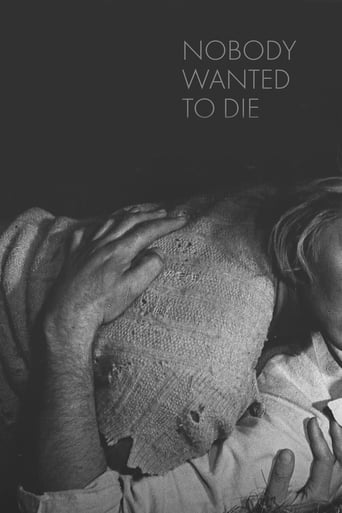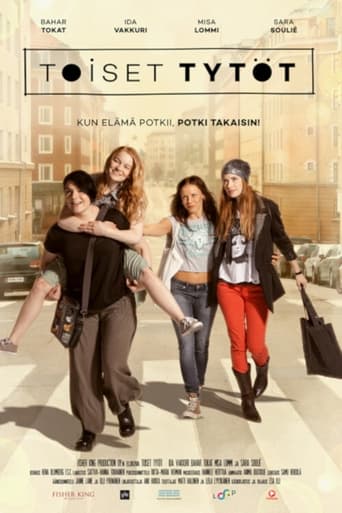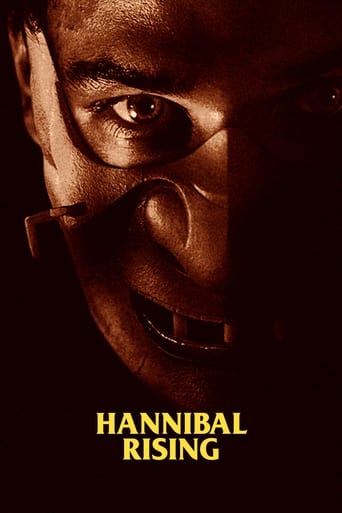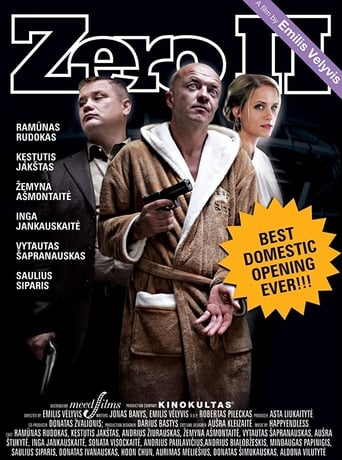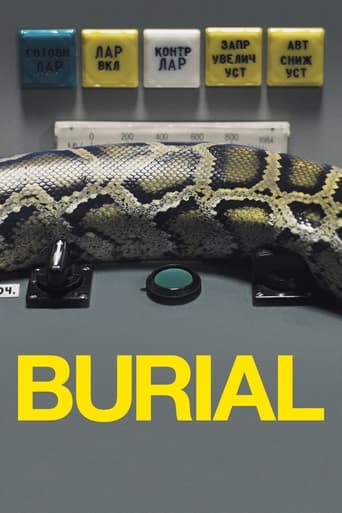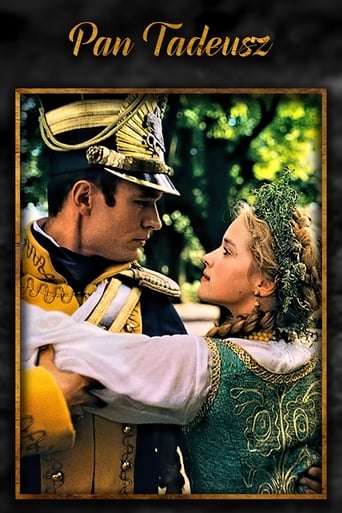
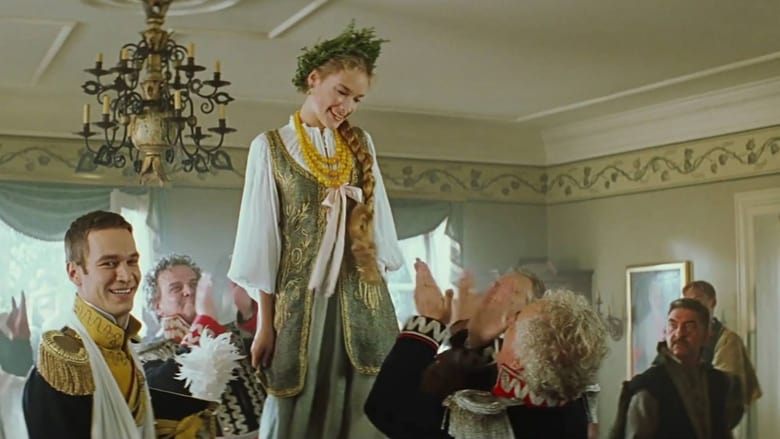
Pan Tadeusz (1999)
A grand and patriotic tale of Poland's struggle for freedom just before Napoleon's war with Russia. Written in poetic style by Adam Mickiewicz, this story follows two feuding Polish families as they overcome their old conflicts and petty lives. However, they are able to unite as one with their patriotic and rebellious efforts to free the country they deeply love from Russian control.
Watch Trailer
Cast


Similar titles
Reviews
In the modern times absorbed so much by computers, technology, materialism, it seems that such values like love, patriotism, sense of beauty and quest for the sublime belong to the days of yore, the days of fairies, poets and nobles. Yet, on such occasions like national holidays that usually serve to remind nations of their identities, human thoughts go towards our ancestors, those who created a nation, played a decisive role in what we are and who we are now. And in this very spirit, on November the 11th when my country celebrates the Independence Day, my friends and I have decided to see the significant movie by Andrzej Wajda. It is worth stating here that the film, the action of which takes place in 1811 and 1812, 16 years after Poland was entirely partitioned among Germany, Austria and Russia, is based on the key work of Polish literature --- 12 Books of Verse titled PAN TADEUSZ and written in Paris in the 1830s by the famous Pole Adam Mickiewicz (1798-1855). The goals of watching being purely patriotic, the movie appeared to us as convincing, more to say, interesting from the very beginning. However, the experience of the movie was not merely a patriotic awareness that would truly be applied to a limited number of viewers but something much more, something I would like to share with other people no matter what nationality, upbringing, culture they are - a treasure that seems lost in most modern movies yet found in the great effort to craft cinematic productions based on classical literature. Certainly, it is a serious effort to adapt 1800s' romantic verses to the expectations of modern movie buffs..."O Lithuania, my country, thou Art like good health; I never knew till now How precious, till I lost thee." (translation by Kenneth R. Mackenzie)That is how PAN TADEUSZ by Adam Mickiewicz begins, that is how PAN TADEUSZ by Andrzej Wajda ends and what is in between? A great story of courage, love, sensation, uprising, honor, politics (in the times of Napoleon - a great hope for the partitioned Poland), confession and ... reconciliation: something classical, universal, touching, humane, pure and upright. One could indeed enumerate such adjectives... How does it work in practice? On the one hand, we have a particular focus on national identity and duty while, on the other hand, the emphasis is drawn upon particular characters. To view comes young Tadeusz Soplica (Michal Zebrowski) in love with two female characters: one is Zosia (Alicja Bachleda) – a 14-year-old girl of youthful, innocent joys; the other is Telimena (Grazyna Szapolowska) - a lady of extravagant behavior and tastes of luxury. In between come various characters, including impetuous Gerwazy (Daniel Olbrychski), young count-artist Horeszko (Marek Kondrat), and a humble priest Robak (Boguslaw Linda) who hides his secret till the very last hour of his life ... The factor that goes with characters and, more specifically, the manner we perceive them is the strongest point of the movie: performances. Although the task to play the roles and say their lines in poem appears to be particularly difficult, most of the cast craft their performances with exceptional flair. It is thanks to them that we all may feel the story go on naturally. Daniel Olbrychski is magnificent as Gerwazy focusing on the aforementioned impetuosity, Boguslaw Linda can be referred to as 'convincing modesty', Ms Szapolowska says her lines with desirable elegance and Michal Zebrowski together with youthful Alicja Bachleda are a fine staff for the couple in love.Since Mickiewicz payed particular attention to the descriptions of nature, the film does not skip this aspect. It can boast wonderful shots of the green fields, memorable clouds, returning storks, silent forests and beautiful sunsets. Being filmed in an artistic manner, it evokes a unique atmosphere and constitutes a sort of moving painting of idyllic landscapes. The narration by Adam Mickiewicz portrayed by Krzysztof Kolberger adds more importance to it providing the emotions of the author. The brilliant direction by Andrzej Wajda and the musical score by Wojciech Kilar supply a viewer with undeniable experience. Moreover, some scenes remain so intensely in the memory that any sensitive viewer (sensitive to art) will truly be absorbed by watching. Here, I would like to mention famous bear hunting, confession of Jacek Soplica and witty but elegant coffee making sequence. Just a pity there is not a famous mushroom picking tour described widely by Mickiewicz.If you asked me what this movie means to me, my answer would be simple: an experience for eyes and soul, great cinema which returns after a period of absence, which returns like the upright storks that long for the sublimity of patriot's homeland.
Andrzej Wajda has taken a masterpiece in one genre (poetry) and not only done justice to it but created a masterpiece in another genre (film), one which did not even exist when Mickiewicz wrote the poem 166 years earlier.The actors are mainly well-known faces in Polish cinema and yet all rise above the stereotypical images many of the audience have of them. The greatest example of this is Boguslaw Linda as Robak the Priest. In the most moving scene in the film he gives the performance of his life.The harmonious blend of Wajda's direction and Wojciech Kilar's score is a sensual feast. It is a film which impresses a profound sense of beauty to such an extent that one could appreciate the sheer art of the film without even having to understand the language (I cannot vouch for the quality of the sub-titles in English as I saw it in its original version).If you only see one foreign language film this year, make sure it is this one.
I have just come home from seeing this film in Amsterdam, which was the West-European premiere (12 dec. '99). I did not read anything about this film, or comments that other spectators made. So this is a direct-from-the-heart comment on the 'naked' movie.I am truly sorry to say - and this will probably hurt many Polish spectators - that I think that as a film, 'Pan Tadeusz' has some important failures. Not being Polish, I do not have an automatic sympathy for Polish films in general, or for films about Polish history or about Polish literary works. I believe that for non-Polish audiences - or even for Polish non-literary-educated audiences - the film is hard to digest - if digestible at all. Besides, even my Polish friends were quite disappointed, and I think I understand why.The first hour of the film is particularly hard to follow. Lots of names, situations, storylines without any explanation; a language that is archaic if not swollen, and characters that are neither introduced nor stay on the screen long enough to become interesting (with the obvious exception of Gervazy, although the man does not need to scream so much all the time if you ask me).During the second hour I got some clue about what was going on, particularly when it came to the fighting scenes (no, I am not fond of fighting scenes, but at least I know what they are about) and with the help of my Polish company who gave some explanations. It is never a good sign if you need other people's explanations to understand a film.The ending of the film got me back to the more chaotic circumstances of the beginning, but it included a rather forced attempt to solve the 'plot' and then again left us with an open ending which did not interest me.In all, I think that in the transition from the poem 'Pan Tadeusz' to the film 'Pan Tadeusz', Wajda lost the strong points of the 'poem' genre, and failed to include the strong points of the 'film' genre. A 2,5 hour film focuses the spectator more on the storyline than a 20 hour book. The storyline of 'Pan Tadeusz', however, is for non-Polish audiences too thin and too mysterious to comprehend or value.Fortunately there is one aspect that was enjoyable: the gorgeous cinematography, the great landscapes, the fine camera movements, and the nice colours. Here I could see and recognize what a great cinematographer Wajda is (I never doubted that). I just think that there were some unfortunate premisses at play in the idea of translating the literary work 'Pan Tadeusz' into a movie. At least, it did not work for me.
Pan Tadeusz had a huge impact on Polish audience this year. The film, which was made on a three-million dollar budget, beat all records of popularity in Poland. On the first weekend 420,000 Poles saw the movie. By mid-November more than three million Poles watched Pan Tadeusz in the 130 movie theaters nationwide.We can expect high popularity level in Lithuania, and, maybe, to some extent in Belarus. But otherwise, the movie will be overlooked and probably discarded by the people who are not familiar with the history of the region, namely, with the Grand Duchy of Lithuania and the union with Recz Pospolita (The Polish-Lithuanian Commonwealth).For Poles, Lithuanians, Belarusians this is a movie that brings back poignant nostalgia for the glorious past of the Duchy. For everyone else, it is just another historical ballad, based on the classical poem of Adam Mickiewicz.The director, Andrzej Wajda, did a wonderful job -- the casting seems almost perfect, the whole organization is very nice, the acting is powerful. Some Polish movie critics predict that the film is going to be nominated for Oscar, but as far as it looks now, it is going to be huge -- but only on a regional scale.


